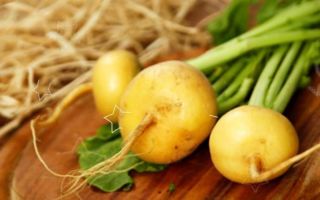Content
- 1 Turnip chemical composition
- 2 Nutritional value and calorie content of turnips
- 3 Useful properties of turnip
- 4 The benefits of turnip for women and men
- 5 Is it possible for pregnant and lactating women to turnip
- 6 At what age can turnips be given to children
- 7 The benefits of turnip greens and juice
- 8 The use of turnip in traditional medicine
- 9 Turnip in home cosmetology
- 10 What can be cooked from turnips
- 11 Possible harm to turnips and contraindications
- 12 Conclusion
The benefits and harms of turnips are an interesting topic for lovers of simple vegetables and healthy eating. This product is rarely found in the daily diet - however, it is all the more interesting to understand the properties of turnip and understand whether it is worth consuming the vegetable more often.
Turnip chemical composition
The benefits and harms of turnips for the human body can be appreciated if we consider the composition of the vegetable. Turnips include the following substances:
- organic acids and dietary fiber;
- vitamins P and PP;
- ascorbic acid and vitamin A;
- vitamin B1 and B2;
- vitamin E;
- a large amount of vitamin K;
- potassium and phosphorus;
- calcium and manganese;
- zinc;
- choline and beta-carotene;
- vitamins B6 and B9.
Nutritional value and calorie content of turnips
The turnip contains all the energetic substances in full. However, carbohydrates are presented in the largest volume - 6.2 g. A little protein is contained in the vegetable - about 1.5 g, and fats are present in very small amounts - no more than 0.1 g. The calorie content of a fresh product per 100 g is 32 calories.

Useful properties of turnip
Considering the rich elemental composition of the vegetable, there is nothing surprising in the fact that the beneficial properties have an extremely beneficial effect on the body. In particular, turnips:
- normalizes peristalsis and helps to get rid of constipation;
- increases gastric secretion - turnip is of great benefit for gastritis with low acidity;
- helps to remove excess substances, toxins and retained fluid from the body;
- has a disinfecting and anti-inflammatory effect;
- good for the reproductive system;
- helps to get rid of discomfort with joint diseases;
- cleans the blood;
- serves as an effective prevention of oncology.
There are several types of vegetables - roots are distinguished by color. In some varieties, certain beneficial properties may be more pronounced than in others.
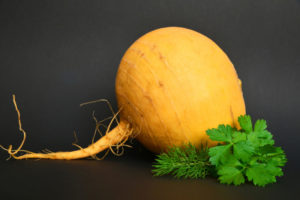
Yellow
The health benefits of yellow turnip lies in its powerful anti-cold properties - it fights any infections, strengthens the body's resistance to viruses, and also helps with periodontal disease. A yellow vegetable is a valuable remedy for edema, when you consume turnip or drinks based on it, excess fluid ceases to linger in the body.
Yellow roots are most often used for cosmetic purposes, since they are the ones that most effectively affect the skin.
Black
Black turnip is very useful for coughing as it is a natural mucolytic and promotes phlegm removal. It also helps with toothaches and other inflammations. The vegetable is often used for weight loss, to prevent joint ailments and to fight fungus and infections. In general, the black vegetable is considered the most beneficial to the body of all varieties of turnip.
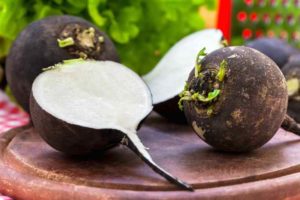
White
White turnip is ideal for normalizing metabolism - it speeds up metabolism, helps to eliminate toxins and toxins, helps to quickly lose weight. With the help of a white root vegetable, you can also fight edema, since excess fluid when eating a vegetable quickly leaves the tissues.
Green
Green turnip effectively helps to solve intestinal and stomach problems. The list of its advantages also includes a beneficial effect on blood vessels - the product reduces the risk of atherosclerosis. Green vegetable normalizes blood pressure and strengthens the heart, promotes good brain function.
The benefits of turnip for women and men
The fair sex appreciates the product primarily for its dietary properties. This vegetable can be included in almost any diet and achieve quick results in weight loss - despite the fact that turnip is not a delicacy and is affordable for everyone. In addition, the benefits of turnip for women include positive effects on the skin and hair.
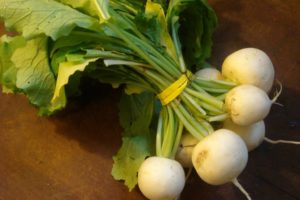
Vitamins and antioxidants in the composition of the product, as well as a beneficial effect on the blood, help women to more easily endure periods of menstruation - and contribute to the healing of gynecological diseases.
As for the benefits of turnip for the body of men, with constant use, turnip protects against oncological neoplasms and prevents the development of atherosclerosis. This is especially important, because men are more susceptible to heart and vascular ailments. Turnip has a positive effect on potency and libido, since the vegetable improves the blood circulation in general.
Is it possible for pregnant and lactating women to turnip
The benefits of turnip dishes are unconditional for pregnant women - the vegetable contains a lot of valuable minerals, vitamins and acids. The properties of the product contribute to the normal formation of the fetus, support the health and well-being of the mother. The vegetable serves as an excellent prophylactic and therapeutic agent for colds - this is important for pregnant women, since most pharmacy medicines are contraindicated during the period of gestation.
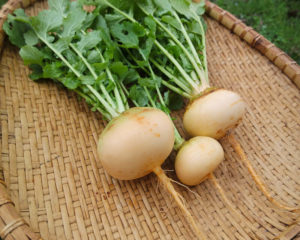
The vegetable relieves inflammation and also helps maintain the beauty of hair and skin. If there is no allergy, then it is imperative to eat turnips in one form or another while carrying a child - albeit a little.
But during lactation, the vegetable should be abandoned - at least for the first few months. It can harm babies if they cause allergies. In addition, the product is unlikely to be digested by the baby's delicate stomach, even through breast milk - the baby is not excluded from colic or intestinal disorders.
At what age can turnips be given to children
For the first time, you can offer a child a vegetable after 8 months of life - provided that the baby's intestines are generally healthy. It is not a fresh root vegetable that should be introduced into complementary foods, but stew, mashed potatoes or porridge with the addition of a vegetable. Raw turnips are allowed for children only after 2 years - earlier the child's body will not be able to assimilate the vegetable, and only harm will result.
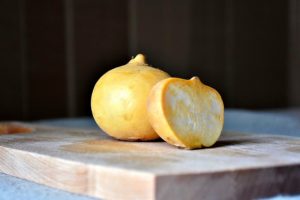
With proper use, the vegetable will help first of all to regulate the work of the baby's intestines - it will improve peristalsis, and prevent constipation. But the vegetable should not be given to children in too large quantities - this can lead to flatulence and indigestion.
The benefits of turnip greens and juice
In home medicine and cooking, not only the vegetable itself is appreciated. Turnip leaves, as well as the juice obtained from it, have useful properties.
- Vegetable leaves are often used in the preparation of decoctions and infusions. The foliage has a diuretic and choleretic effect, protects against anemia, and benefits the joints, liver, and organs of vision. The tops contain a lot of calcium, sulfur and iron.The benefits of leafy turnip are great - this is a special kind of vegetable, which is also called salad, since its main value lies precisely in the thin, juicy and vitamin leaves.
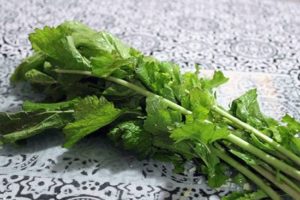
- The juice obtained from fruits and tops is very rich in vitamins and organic acids. It is recommended for use with "sluggish intestines" - the remedy can serve as an excellent prevention of constipation. The juice cleanses the blood, helps the liver in its work, has a slight tonic effect, and also dissolves small calculi in the kidneys and strengthens teeth and bones.
The use of turnip in traditional medicine
The benefits of turnips will be, even if they are used only for culinary purposes. But in addition, the vegetable can be used for the targeted treatment of many diseases - the healing properties of turnip are used in many folk recipes.
For colds and coughs
An anti-inflammatory and expectorant vegetable will help you quickly reduce fever and get rid of dry coughs. There are two popular recipes.
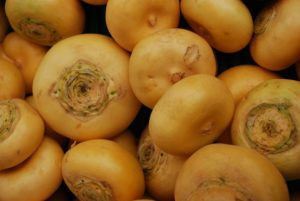
- A decoction is prepared from the fruits, which promotes expectoration of sputum. The peeled fruit is rubbed on a fine grater, squeeze fresh juice from the resulting gruel, and then placed in a water bath in a small container and brought to a boil. After that, the broth is removed, cooled to a warm state and honey is added. You need to drink the product four times a day, 1 large spoon. The healing properties of turnips will quickly eliminate the fever, and the dry cough will be replaced by a wet one, more productive in terms of recovery.
- For cough and fever, you can also prepare a healing infusion. The vegetable is peeled and cut into small pieces, poured into a jar and poured to the top with boiling water. The drink is infused for 6 hours, and then it is drunk cooled down in 2 large spoons - three times a day.
To increase potency
Turnip is an excellent remedy for improving libido and potency. To return to normal sexual activity, you can simply consume fresh or stewed vegetables every day as part of other vegetable and meat dishes.
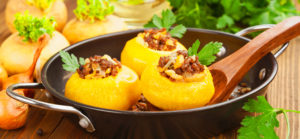
However, men often take healthy vegetable seeds to increase potency - 1 teaspoon once a day. The seeds can be eaten simply as a medicine, or they can be added to regular food.
High pressure
The vegetable lowers blood pressure, therefore it is extremely useful for hypertensive patients. You can eat it fresh, but turnip will be much tastier if you steam it until it becomes soft. The finished vegetable is seasoned with liquid honey, it is also useful to add some citrus fruits - for example, orange slices.
With diabetes mellitus
The vegetable helps lower blood sugar, improves metabolism, and maintains a healthy pancreas. Therefore, it is very useful for diabetics - regular use will help avoid a number of unpleasant complications of diabetes. The glycemic index of a vegetable is small, and vegetable sugars do not harm and do not lead to a sharp increase in glucose levels.
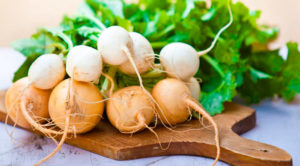
With diabetes, it is better to eat a vegetable in a processed form. With increased sensitivity of the stomach, boiled or steamed turnips will be absorbed much easier and will definitely not harm the body.
Toothache
Healing turnip decoction is good for relieving toothache.
- In order to prepare a drink, you need to grate the turnip and boil the pulp for a quarter of an hour.
- After that, filter the broth and allow it to cool to a warm temperature.
It is not necessary to take the product inside - it is enough to rinse your mouth several times a day. The healing properties of turnips will relieve inflammation and relieve pain. Since turnip has anti-inflammatory properties, it will help eliminate the very cause of toothache.
With cystitis
The beneficial properties of the vegetable will help relieve inflammation in cystitis and eliminate discomfort. It is necessary to squeeze fresh juice from the fruits and tops, then boil it over low heat for 5 minutes, and then take a couple of tablespoons three times a day.
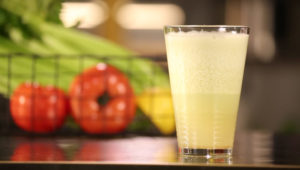
With liver diseases
The vegetable is approved for use in liver diseases - albeit in small quantities to avoid harm. It has a cleansing effect on the blood and internal organs, promotes the elimination of toxins, therefore it takes over some of the functions of the liver and facilitates its work.
In case of hepatosis, hepatitis and other ailments, it is best to regularly consume not fresh root vegetables, but steamed or stewed turnips. It is better absorbed by a weakened body, and there is much less risk that the vegetable will harm.
With frostbite and gout
The properties of the vegetable are also beneficial when applied externally - an ointment is made from it, which is good for gout, joint diseases and skin lesions. Prepare the tool like this - peel the pulp and grate, and then add goose fat to the grated pulp, and the fat should be 2 times less. The ingredients are mixed and the homemade ointment is applied to the affected skin and sore joints.

A useful ointment heals burns and small cuts well. For a greater effect, you can not only smear sore spots several times a day, but also make compresses, leaving them for several hours or overnight.
Turnip in home cosmetology
The beneficial properties of the vegetable are used not only in cooking and medicinal recipes. Turnip is also found in folk cosmetology - its vitamins, minerals and valuable acids have a very beneficial effect on hair and skin. If you do vegetable-based face and hair masks at least twice a week, the effect will appear very quickly.
For hair beauty
If your hair has become too dull, weak and has begun to fall out, it is worth resorting to turnip-based firming masks. For example, such a remedy is often used:
- 4 large spoons of turnip juice are mixed with a teaspoon of onion juice;
- add a large spoonful of burdock oil;
- mix and rub into the head near the hair roots.

It is necessary to keep the mixture for half an hour, and then the head will need to be thoroughly washed. Therefore, it is most convenient to do the mask shortly before the scheduled shampooing. It is recommended to repeat the procedure at least twice a week - then the shine and strength will return to the curls faster.
Turnip will help correct the situation with too oily hair. For example, you can use a simple mask like this:
- grate a little fresh turnip on a fine grater;
- distribute the resulting gruel over the curls and rub gently into the scalp;
- wrap your head with plastic wrap and a towel on top.
They also keep such a mask for about half an hour, and then wash it off with a light shampoo. With constant use, turnip regulates the production of subcutaneous fat at the hair roots - and allows you to solve the problem of greasy, quickly dirty curls.
Face masks
Turnip is an excellent face cleanser. Most often, the vegetable is used to eliminate acne, slightly tighten the skin and remove fine wrinkles. But turnip also has a moisturizing effect and normalizes the level of sebum production.

For complex care of the skin of the face prone to irritation and the appearance of acne, use the following mask:
- the peeled vegetable is steamed and then chopped to a puree state;
- a teaspoon of olive oil or low-fat sour cream is added to soft puree;
- mix well and spread over the skin for about a quarter of an hour.
After the mask is washed off, it is recommended to wipe the skin with a cotton pad moistened with mineral water. If you use a useful remedy regularly, the skin will become more elastic and smooth, and problems with acne and irritation will gradually disappear.
Another mask for dry sensitive skin is also popular.
- 2 large tablespoons of turnips, crushed to the state of gruel, are mixed with an equal amount of vegetable oil - both sunflower and olive or burdock are suitable.
- Add a large spoonful of liquid honey to the mixture and stir until the product becomes homogeneous.
- The mask is applied to the face and kept for a quarter of an hour.
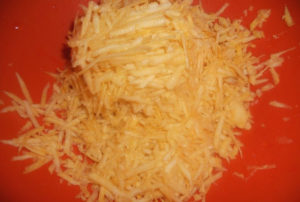
Turnip and oil tone and moisturize the epidermis, while honey evens out complexion and significantly softens the skin. It is best to apply the homemade composition on the face about 3 times a week - then the effect will be stable.
What can be cooked from turnips
Of course, one should not forget about the culinary purpose of the vegetable - there are many healthy and tasty turnip dishes. Most often, turnip is used in salads, turnip is served as a side dish for meat, cereals and fish, sometimes a boiled or steamed vegetable can act as a separate dish.
Steamed turnip
The most popular dish that comes to mind first when it comes to this vegetable is the classic steamed turnip. It is not difficult to prepare it, and the benefits of steamed turnip remain maximum - the volume of vitamins and valuable acids practically does not decrease after heat treatment.

To make a steamed turnip, you must:
- wash, peel and cut into small cubes several small turnips;
- put them in ceramic pots and fill with water so that it covers the pieces of vegetable;
- add salt to taste;
- put the turnip pots in the oven for an hour and a half at 180 degrees.
Vitamin salad with honey
The health benefits of raw turnips are best shown in a tasty and healthy salad. In addition to the turnip itself, you need to take liquid honey for it - and some frozen berries, for example, cranberries or currants.
- A few small root vegetables are washed properly, peeled of tough skin and cut into thin strips. You can also grate turnips on a coarse grater.
- The berries are slightly thawed, and then kneaded thoroughly with a fork to get more juice.
- Grated turnips are mixed with mashed berries, then sprinkled with sugar according to your own taste and poured with honey.

Such a salad will not only delight you with its excellent taste, but will also serve as an excellent immunity-strengthening agent. It is especially useful to eat the dish in winter. You can take any turnip to make a salad - but most often they use a yellow vegetable variety.
Possible harm to turnips and contraindications
Even with all the great benefits, sometimes turnip can be harmful to health. It is strongly not recommended to eat a vegetable:
- with acute and chronic gastritis, colitis or stomach ulcer;
- turnip is contraindicated in pancreatitis - it will promote secretion, which is not necessary at all during an exacerbation of the disease;
- with ailments of the thyroid gland;
- with serious problems with the kidneys and urinary tract;
- with severe nervous disorders;
- with complicated forms of diabetes;
- with individual allergies.
It should be borne in mind that turnip is a root vegetable that must be consumed with great care and in small dosage, especially when it comes to raw vegetables. The daily norm should not exceed 200 g of the product - otherwise the vegetable will be harmful, cause heartburn, severe flatulence, diarrhea or allergic reactions.
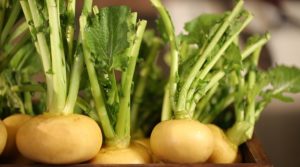
Conclusion
The benefits and harms of turnips mainly depend on how much they are consumed. The vegetable will not do harm in small quantities, and if there are no strict contraindications, then the body will be exclusively beneficial.

